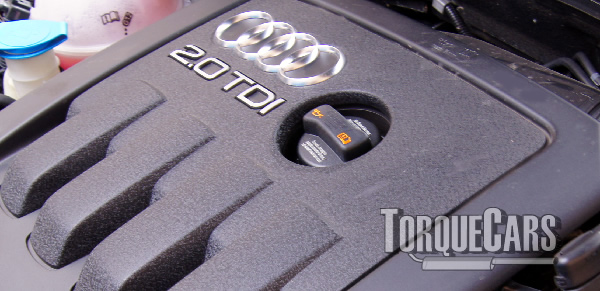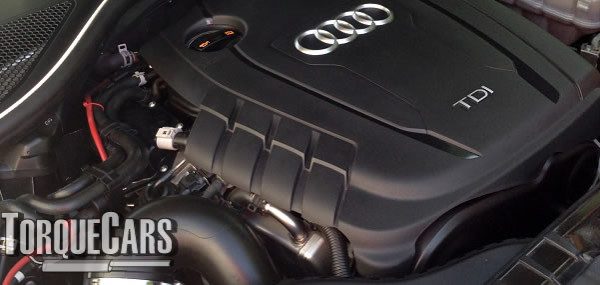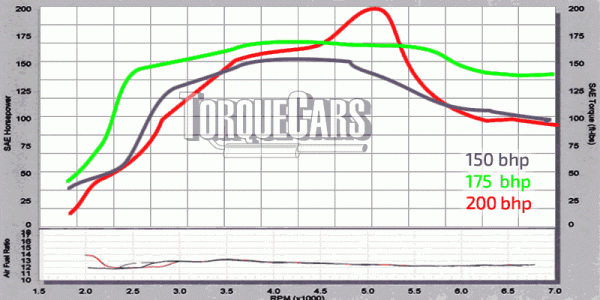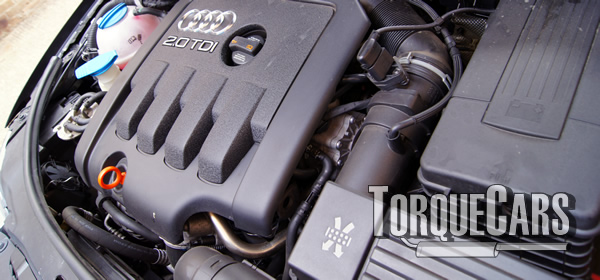Tuning Diesels for Maximum Power and Torque
"Doctored Diesels - Our Diesel Tuning Guide"
We take an unbiased look into the world of diesel tuning and look at your engine tuning/remapping options with the advantages and disadvantages outlined.

From a diesel perspective, anything that isn't turbocharged is a waste of time from a tuning point of view*.
Similarly, anything that isn't using electronically managed direct injection is a pointless tuning proposal* so we are somewhat limited to modern Turbo Diesels.
(*You can still tune older diesel engines but they will take a lot more effort to get a noticeable power gain, and generally be very smoky and unreliable and the cost will be excessive for the return you'll get.
We have compiled a video from the main points in this article on our YouTube channel.
So what is the primary difference between a petrol engine and a diesel engine?
A petrol engine uses a spark to ignite the compressed air/fuel mix in the cylinders and this works quite well.
A diesel does not use a spark, instead it compressed the air so much that it gets hot enough to start to burn at the point the fuel is injected. The fuel is injected BTDC as a fine mist it atomizes and start to burn. So diesel engines are fairly efficient at extracting power from the fuel but will generally top out around 7000rpm whereas a gasoline engine will reach 22,000rpm in ideal conditions.
This makes a diesel engine much more efficient, as you get a more complete burn of the fuel and modern injection systems allow a very fine control over the fuel and the way it is added.
It's like comparing a large shovel (diesel) with a small shovel (petrol), the small shovel will move small amounts but more quickly and the larger shovel means the work is slower but can be done in larger quantities per cycle.
A diesel engine will pull from very low RPM ranges, whereas a petrol engine needs to be in the top half of the RPM range to be making the same power.
Only recently has engineering caught up and provided extremely high compression ratios and high quality turbochargers to maximise the engines efficiency and output.
Recent Developments in Diesel Tuning
Thanks to direct injection, the fuel can be injected much later which maximises the power released and efficiency of the engine. We are seeing these diesel developments making their way over to petrol engines as manufacturers chase better fuel economy and power.
So it's not impossible to tune a NASP Diesel, as you can always make tweaks but compared to the massive power gains you get from a turbocharged engine with an ECU controlled fuel injection it pales into insignificance.)
Generally the newer the better, modern CR engines are more tuneable than the older PD ones although both give really good gains.
Diesel Remaps
So by simply altering the engine timing, fuel delivery and turbo via the computer you can transform your diesel engine.
A new map is flashed into your cars computer via the OBD port, and this takes over from the manufactures generic safe for all countries/safe for poorly maintained vehicles map and allows you to fully release the potential of your diesel engine.
Most ECU controlled diesel engines have wastegate and boost control which is where much of the tuning gains come from.
The newer engines have fuel and timing adjustments per cylinder and more points of adjustment, older diesel engines have a fuel rail pressure and timing control which does a fine job but doesn't net you the power gains you'll get with engine tuning/remapping the newer ECU's.
Get rid of those two ointment bound flies and things start to get interesting.
Typical power increases on diesel remaps
A 2001 plated Peugeot 406 2.2HDi has been re-mapped from factory spec 136bhp (it's pretty good in that tune with 235lbft to play with!) to a whopping 192bhp @ 4150rpm and 329lbft (yes, that's right, we have NOT confused Nm with lbft) delivered from 2250rpm. Most modern diesels offer similar levels of Torque and show massive gains from just a remap.
This endows the car with mid-range thump that wouldn't disgrace a Boxster or Audi TT with the silly engine option.
NO stopwatch necessary, this is a genuinely rapid car now, it both feels quick and achieves the numbers to be quick.
All the anti-diesel folks will bang on about 0-60. Well, (TorqueCars member) HDIfun has never put a stopwatch on it in anger but says "you can do it in well under 8 seconds without going over 3500rpm!
In gear acceleration is a bit of a giggle too - 50 to 70 in FOURTH in about 2.5 seconds!! 70 to 90 in fifth in under 6!!! Flat out, who cares, the factory spec is said to be good for 129mph."
We generally see a 30% power hike on tunes or remaps on most OEM cars, and you'll get better results if you've done some car tuning as well.

Diesel Tuning Results
Let's see what Tuning your Diesel engine does for your quarter mile times.
We are assuming a 1400kgs kerb weight, & Manual transmission. Bear in mind that diesel engines are generally much heavier than similarly powered petrol ones.
| Base power | Quarter Mile |
Tuned to |
Kerb Weight |
Quarter Mile |
| 115hp | 18.26 | 120hp | 1400kg | 18.01 |
| 150hp | 16.76 | 170hp | 1400kg | 16.09 |
| 185hp | 15.66 | 225hp | 1400kg | 14.70 |
| 640hp | 1400kg | 10.97 | ||
| 550hp | 1200kg | 10.98 |
Remaps will typically add around 30-40% power, for larger gains you'll need to upgrade the turbocharger and fuelling.
FWD cars usually start to have traction issues around 230hp, so you should be looking at an all wheel drive or rear wheel drive setup if you want to chase those 10 second quarter mile times.
The pro's of the modern Diesel.
- Better fuel economy (than the equivalent powered petrol)
- Lots more mid range torque and power
- Get both Power and economy gains from a remap
- Longer service intervals and greater reliability
The cons of the modern Diesel
- Slightly more expensive servicing than a petrol car (in some cases).
- Slightly more noisy than a petrol
- Sooty/Smelly exhaust fumes which have become a major cause for concern to environmentalists
- Narrow power band and limited rev range
- Engines are heavier
Recent developments address some of the cons and drawbacks
- Direct injection improvements
- Particulate filters/catalysts to remove harmful gases
- Start stop technology
- Twin scroll turbos and variable turbos increase the power band
Go figure for yourselves - and then reckon into the equation over 35mpg when driven in anger.
(Since the introduction of Euro V standards you can expect to average MPG at 50mpg for most drivers, improving on long runs)
A powerful turbo diesel is perfect for the young at heart grown up driver. Boy will you love that sheer muscle from the immense waves of Torque on offer.
It is clearly the sensible and fun choice if you want power and economy.
Everyone who has driven a current 335D or a 535D will likely agree that they are disgustingly rapid from the factory.
These engines can still be made to deliver more torque, but you have to question if it's really necessary given the ease with which they both fling themselves forward in response to a gentle squeezing of the right toes
Some assert that manufacturers modestly under-tune the current crop of performance diesels in order to create a place in the market for their petrol powered models.
In the case of the Golf GT TDi I've still to meet anyone who doesn't exceed the standard manufacturers acceleration claims by a whole second on a stock car.
For some folks, only petrol will do and if this is you we strongly recommend that you spend a weekend driving one of the new crop of Turbo Diesels.
In our estimation these are of the older generation who will not even test drive a diesel car because 'they're slow and noisy, aren't they?'
Just look how many current model Micra's are being driven around with Nissan's excellent but spineless small capacity 4 cylinder petrol units.
Try the dCi 82, for example. It handles like a go-kart and accelerates absolutely beautifully. It would suit your dad perfectly.
Other mods for diesel power upgrades.
A larger turbo is the next most significant mod you can do on a diesel. This compresses the air coming into the engine, and can mean an extra 150hp or more in some cases.
Adding a larger turbo will dramatically increase the power on offer.
Many production cars power can be almost doubled through the addition of a larger capacity turbo. Obviously the engine will need to be mapped to take advantage of this.
The turbo will typically come with an airflow map, which needs to have a corresponding fuel map set in the ECU, otherwise the car will run lean or rich and you'll have problems.
A stock ECU will trim the fuel and cope with small changes in airflow, but we strongly recommend you get the car mapped and correctly setup.
Turbo upgrade options
There are a few options out there. The easiest is a hybrid turbo where better internals are fitted into your turbos casing. This allows it to bolt on as it is, and with engine tuning/remapping you'll get more power on tap.
You can also get turbo kits, where a larger turbo is supplied on a manifold suitable for your engine. These offer much larger power gains.
Hybrid turbos use the OEM case, with uprated internals to provide the spool and boost characteristics you seek. Bigger turbos generally require more custom pipework and can be challenging to install but thankfully most kits are setup for your car with the correct type of wastegate control and manifold design and all the pipework you'll need.
Stock turbos are generally good for 30% more power, but will struggle at higher levels of boost, and may prematurely fail.
Bear in mind that this extra air needs to be matched with extra fuel. At some point, your stock injectors and fuel pump will also need to be uprated to cope.
Without addressing this you'll get flat spots and risk dashboard errors and slipping in to limp home mode.
Always allow some leeway when it comes to these mods, don't push the injectors or turbo to the max, as they get worn their performance will degrade and you'll start to get issues if things are setup assuming everything to be perfect.
We get asked if induction kits and sports exhausts work well on diesels.
We would recommend that you shorten your service intervals. More power means more wear and tear on the engine components and particularly the oil, so it makes sense to cater for this.
In most cases, you will find the factory spec exhaust and air filters can more than cope with the requirements of the engine and increasing these can actually cause flat spots and issues so are best avoided.
However if you find that there is a restriction in either the air intake or exhaust then an upgrade will be needed. This is common when larger turbos have been added, or very aggressive remaps.
We would also recommend that you keep the usual dual mass flywheel. Many of our viewers and forum members have had issues putting a lighter one piece flywheel on their diesel engines.
Adding a higher flowing washable air filter can save on long term maintenance and may in some cases provide better economy, especially when compared to a dirty paper filter.
What are the downsides to tuning diesel engines?
There is a little more wear and tear on the turbo. We note that on aggressive remaps, where the tuner is pushing for a higher peak power figure to quote in advertising you’ll often see premature turbo wear.
Maintenance schedules should be tightened up, which is true of petrol engines too when they are tuned.
Head bolts, injectors, and clutches are potential weak spots that will also require upgrading.
Remapping still holds out as the best value mod you can do to a diesel engine. Expect a power increase of around 20-30% from a remap and around 10% better fuel economy under careful driving conditions.
If engine tuning/remapping is not possible as is the case on locked ECU's and some older engines then a good quality tuning box is a good option and works like a piggyback ecu.

Research your mapping company well, there are lots of small operators out there who do not fully understand the complexities of each engine leaving you with flat spots, and running problems under certain conditions.
Peak power figures on tunes or remaps should be ignored.
Peak power claims should really be ignored, you want a nice wide torque band and zero wheelspin at certain points of the ECU.

Look at the plot for the 200hp red line and compare it with the 175hp green line. The green is clearly a better map, but the headline power figure of the green at 200hp will sell better when people are not informed or given an opportunity to see the power graph for themselves.
Induction kits and exhausts should theoretically offer a slight increase in power as you still require efficient delivery of lots of cold air and a way to expel them as efficiently as possible.
In reality though the OEM airflow setup through the intake manifolds and air filter is usually more than adequately cope with the car's requirements with some spare capacity, even after a remap.
But adding modifications that push the car way beyond the OEM limits may require that you revisit this and upgrade.
The bore size of Diesel exhausts are typically much larger than a similar powered petrol car especially on Turbo Diesel models so gains from larger exhausts are minimal.
But removing the particulate filter for a boost in power was popular, (but this is now outlawed in many annual inspection tests around the world).
Initially, I would recommend just adding a good quality (washable) high flow panel air filter to the standard air box.
As for internal mods for sophisticated diesel engines, typically the rewards obey the law of diminishing returns.
How do diesel tunes or remaps work?
With forced induction, there's only so far you can go with cam/valve lift and air (gas) flow.
Especially with a diesel engine, given the limited rev range there's not that much reward from tuning a head in the traditional way.
Diesel burns very slowly (hence the 4000 rpm peak BHP most achieve, even if they will spin to over 5000 rpm).
Getting the flame front inside the combustion chamber to accelerate faster than the piston crown is the only real option, and this is to some degree achieved by allow small amount of fuel to be injected during the expansion phase of the engine's cycle.
Too much of this and you get smoke and soot, and burn a load of fuel. This can lead to clogging up of the DPF (Diesel particulate filter). See our guide on how to clean a DPF for more info.
Increasing the BMEP (brake mean effective pressure) by means such as increased boost can assist. This, too, is a double edged sword as the biggest fraction of the atmosphere is nitrogen, which, although good for cooling, is still incombustible.
Nitrous on Diesel engines and fuel considerations

That's where nitrous comes in, in the same way it does in a petrol powered vehicle. The gains achieved in this way can be absolutely silly, but given the cost and legal position with regard to road usage it's a bit of a white elephant.
How cetane affects your diesel tuning power
Increasing the cetane rating of diesel fuel is quite effective in increasing the release of 'free' power.
With a diesel engine, the key is getting the fuel to burn more rapidly, as opposed to a petrol engine where octane number is God.
Higher cetane fuels burn more slowly and resist pre-ignition better than low octane fuels. Pre warming the fuel and direct injection into the combustion chamber all help to improve the speed and efficiency of combustion.
Good results can be obtained with cetane improvers. Sadly, these can prove expensive and should not be used in engines that are Euro Iv (2004) compliant. Strangely, the 2.2HDi 2001 model is 2004 compliant. The particle filter ( a whole subject in itself) can become blocked or excessively obstructed by the use of such products.
Other diesel mods
Weight reduction is very very sensible. Not only does less weight mean better performance for free, it also puts less load on tires, which allows braking and handling to be optimized.
It also reduces the load on the environment as less fuel is required, thereby the release of exhaust gases is reduced.
Downsides of Diesels:
Engine mass/weight is a standard problem with diesel cars (especially FWD ones). That heavy engine can upset the handling balance of a car.
Smoke and soot was always a problem but thankfully diesels are now cleaner burning than petrol engines and give better power gains and fuel economy when tuned properly.
Diesel units are heavy; they're dealing with big compression ratios and big torque figures. As such, the bearings are larger in diameter, the gearboxes belong in lorries and tractors even if the change quality is good.
Clutches are getting on for 12" diameter and require fluid operation and servo assistance to make the things pleasant to drive, often a standard clutch will suffer from slip when a tune/remap yields a massive torque figure so you may need to uprate the clutch.
We now have a dedicated diesel forum where you will meet our resident diesel enthusiasts and discuss tuning options for your car.
Please Check out my YouTube channel, we're regularly adding new content...
PLEASE HELP: I NEED YOUR DONATIONS TO COVER THE COSTS OF RUNNING THIS SITE AND KEEP IT RUNNING. I do not charge you to access this website and it saves most TorqueCars readers $100's each year - but we are NON PROFIT and not even covering our costs. To keep us running PLEASE Donate here
If you liked this page please share it with your friends, drop a link to it in your favourite forum or use the bookmarking options to save it to your social media profile.
Feedback - What do You Think?
Please use our forums if you wish to ask a tuning question, and please note we do not sell parts or services, we are just an online magazine.
Help us improve, leave a suggestion or tip
Please watch this video and subscribe to my YouTube channel.
17 Responses to “Diesel Tuning for maximum power and torque”

 Click to accept YouTube Cookies & Play.
Click to accept YouTube Cookies & Play.
Hi i have a peugeot 407 diesel that has had a re map and the dpf removed the performance is great but i smell diesel in the car and the exhaust smokes when accelerating hard, can anybody help please.
Hi, you might have a mistake in the first paragraph, tuning a diesel that does not have a turbo yes it might be pointless, but older turbo diesels that don t have electronic managed direct injection can still be tuned and more likley cheaper! my 1.8 ford turbo diesel engine (engine from early mondeo s and mk 5,6 escorts) is running 45 psi boost and outruns a 19 diesel (chipped) golf on the road and the fuel pump is still standard all i did was open more fuel by tightening a screw!
I have done a cleanup on EGR valve and also flush on exhaust tail. Still i see black smoke when i start the engine. Please recommend how to stop this.
Car: Logan Dci 1.5
Verry interesting and well put advice.I have a Jaguar 2.7D which has been remapped and it improved the driving experience and reduced the turbo lag until it is hardly noticable now.
if I take the muffler off my micra turbo diesel and replace it with a 2 inch pipe, would it harm the engine or make it better, I have a KN flat filter , and a power box but no sound
If it doesn’t smoke when the engine warms up, don’t worry about it.
Hi! I have a Peugeot 407 se with 2.2 Hdi 170 bhp wich i have tuned to 220 bhp. Any suggestions for what the next step will be to increase the bhp?
Is there any sport exhaust kits for this car?
There is very little restriction in the standard 407 exhaust even at 220bhp so there is little to be gained by fitting one. Turbo upgrades are your next step really if you still want more power but traction will be an issue over 250bhp.
hello, i wanted to ask about omething, i have an audi a6 c6 2006 2.0 tdi 140 hp s-line, and i wanted to know if i can upgrade my car to more hp and how can i do that, any information would be really helpful, thank you!
We have a comprehensive article for tuning your engine http://www.torquecars.com/volkswagen/2-0-tdi-140-170-tuning.php
Very pleased to find this w.site, where would you recommend getting my 2.0liter diesel RCZ remapped?
I have super chipped it but keep getting leak and burst engine codes.
Usefull arrivals for people not clued up on tuning boxes
I think this article is great. I have an old mk3 turbo diesel. I wonder if you can advise on how best to get more from her. She already has an upgraded clutch and various other mods. I wonder if changing the exhaust will help with performace and sound. Also what’s the best way of reducing engine noise both inside and outside the car? Any advice on the above would be greatly appreciated. Dinesh
Strong smell of diesel from the exhaust after de cat, would a sports cat high flow cat improve this issue?
HI, I have a bmw 220d (n47n engine) that has been remapped stock parts to 235hp and 500nm. I would like to up the 0-60 times and maybe get a little better sound. Think breathing (Exhausts+intake) is the way to go? Or just fast forward to turbo upgrades?
Thanks very much for the useful information,
I used to have petrol cars and this is my 1st diesel car and more power will make me happier but doesn’t need to be, A8 4.2 V8 Audi
Is remapping this car worth it for how much HP increase ?
I’m not going to tune or change for a bigger turbo because it will require to change intake – exhaust- injectors and this is luxury car not sport .
What is your advice ?
Thanks
I have a high flow cat from darkside and still smells a lot when idling or sitting at a traffic light.